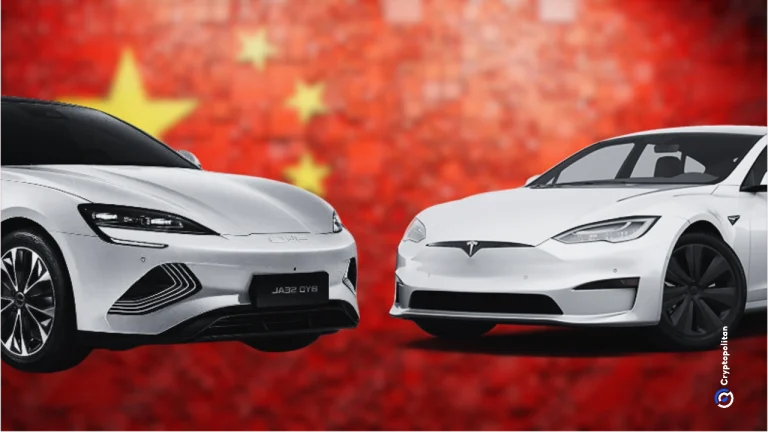Key Takeaways
- China’s electric vehicle (EV) adoption is significantly impacting traditional gasoline consumption, even during national holidays.
- EVs are increasingly used for long-distance travel, a trend observed during the recent Golden Week holiday, reducing gasoline demand.
- This shift presents a warning to global oil exporters as China’s overall oil demand is predicted to peak earlier than anticipated.
- The expansion of charging infrastructure and advancements in fast-charging technology are further accelerating the transition to EVs.
China’s electric vehicle (EV) market continues its impressive growth, with a notable shift observed in long-distance travel patterns during recent festive periods. This burgeoning EV adoption is starting to reshape traditional fuel consumption, posing potential challenges for global oil markets.
The recent Golden Week holiday, typically a period of heightened gasoline consumption in China, saw a marked decrease in fuel usage. This deviation from historical trends underscores the rapid mainstreaming of electric cars, which are no longer confined to urban commutes. Indeed, nearly half of all new vehicles sold in China this year have been either fully electric or hybrid models.
A Shifting Landscape: Long-Distance EV Travel Becomes the Norm
A testament to this evolving trend is the experience of Tianyu Jiang, an EV owner who recently completed a significant 2,000 km (1,242 miles) journey from the Sichuan basin to Beijing. This trip, his first extensive travel in an electric vehicle, highlighted the diminishing concerns surrounding range anxiety. I used to drive a petrol car and had never taken an EV for such a big trip, but long-distance driving for an EV doesn’t feel like a problem anymore,” Jiang reported, reflecting a sentiment increasingly shared by EV drivers.
His experience is not an isolated case. Data from the Chinese transport ministry indicates that approximately one-fifth of the 63.5 million car trips during the eight-day holiday were made using electric or hybrid vehicles, mirroring Jiang’s trend.
💡 The expansion of charging infrastructure, with stations now readily available along major routes even outside urban centers, has been a crucial enabler for these longer journeys. Jiang noted, During travel peaks, both charging and refueling mean waiting. If you really need a charge, exit the highway and you’ll find charging stations within 10 km (6 miles), and it’s cheap.
Impact on Global Oil Markets and Exporters
The most significant repercussions of China’s EV surge are being felt beyond its borders, directly impacting international fuel markets. For the first time in decades, the anticipated surge in gasoline consumption during China’s holiday season did not materialize. Consultancy Sublime China Information reported a nearly 9% year-on-year decrease in October gasoline demand, reaching approximately 12.5 million tonnes. This stagnation, with average daily consumption remaining flat from September, signals a definitive break from seasonal patterns.
Industry projections suggest that China’s gasoline demand, the world’s largest, may have already peaked in 2023. Sinopec’s research division anticipates a more than 4% drop in consumption this year, driven by the accelerating displacement of internal combustion engine vehicles by EVs.
⚡ This downturn serves as a critical warning for global oil exporters. The anticipated peak in Chinese oil demand is no longer a distant forecast but a present reality. A state energy researcher predicted in September that China’s overall oil demand could top out by 2027, with only petrochemical feedstocks expected to offset the decline in transport fuel consumption.
The Road Ahead: Continued EV Growth and Infrastructure Development
The continued expansion of charging infrastructure is playing a pivotal role in facilitating long-distance EV travel. The number of charging ports has increased by over 54% since last year, making EV ownership a more practical option for a broader segment of the population.
Further innovation is on the horizon, with companies like CATL developing ultra-fast charging systems capable of replenishing EV batteries in a matter of minutes. CATL’s founder, Robin Zeng, has projected that electric vehicles could constitute half of China’s truck market by 2028. Should this projection hold true, it would lead to a significant decline in diesel prices.
📌 For nations heavily reliant on crude oil exports, particularly in the Middle East, Africa, and Latin America, China’s diminishing appetite for gasoline presents a substantial challenge. This changing demand dynamic could lead to reduced margins and may necessitate a proactive diversification of their energy economies.
Expert Analysis
China’s accelerating EV adoption is fundamentally altering its energy consumption patterns, with significant implications for global oil markets. The country’s decreasing reliance on gasoline, driven by widespread EV use and supported by expanding charging infrastructure, signals a potential peak in oil demand. This transition presents both challenges and opportunities for oil-exporting nations, highlighting the need for strategic energy diversification.

